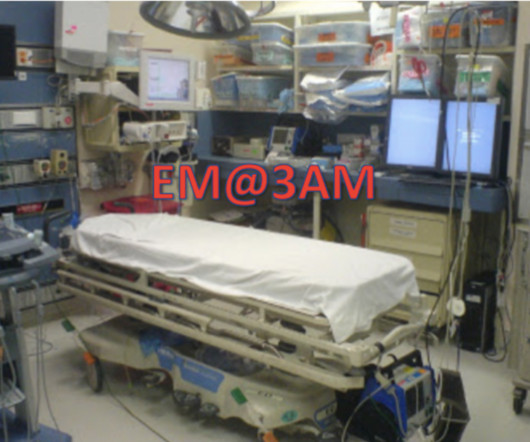Allergic Reactions and Anaphylaxis
EB Medicine
JANUARY 17, 2023
Intro The number of ED visits and hospitalizations Studies show up to 57% of anaphylactic reactions are not recognized, and epinephrine is not administered in up to 80% of cases.

EB Medicine
JANUARY 17, 2023
Intro The number of ED visits and hospitalizations Studies show up to 57% of anaphylactic reactions are not recognized, and epinephrine is not administered in up to 80% of cases.

EMDocs
JANUARY 25, 2025
A 45-year-old outdoor enthusiast presents to the emergency department with fever, headache, myalgias, and malaise. BioMed Research International, 2020, 1-10. 10^9/L) Moderate (0.50.9 10^9/L) Severe (< 0.5 10^9/L) Generalized leukopenia (i.e. Most common causes of leukopenia Infections: 36.4% Medications: 25.6% link] Lu, W.,
This site is protected by reCAPTCHA and the Google Privacy Policy and Terms of Service apply.

RebelEM
DECEMBER 5, 2023
While the evidence is not strong, those who have been undertreated, experienced delays in treatment, or required multiple injections of epinephrine are more prone to experience a recurrence of symptoms ( Ellis 2007 , Liu 2020 ). A naphylaxis – Emergency Medicine Updates 2. Biphasic Anaphylactic Reactions. Read More: 1.

Emergency Medicine Education
AUGUST 10, 2024
Biphasic anaphylaxis: A review of the literature and implications for emergency management Corticosteroids in management of anaphylaxis; a systematic review of evidence

EMDocs
JUNE 8, 2024
A 32-year-old man presents to the emergency department with eye pain. Dilation of conjunctival vessels resulting in hyperemia and edema (A) is the underlying pathophysiology of conjunctivitis, which can be brought on by infection or allergic reaction. Overview of Eye Injuries in the Emergency Department.”

RebelEM
JANUARY 23, 2023
Background: Diphenhydramine, a first-generation antihistamine, is the most common pharmacologic agent used to treat acute allergic reactions. Ann Emerg Med 2020. While the need for parenteral therapy is apparent in anaphylaxis, it’s more nebulous in minor and moderate non-life-threatening reactions such as urticaria.

EMDocs
JANUARY 3, 2024
10 This procedure has well-described rare complications including infection, blood loss, allergic reaction, arrhythmia, pneumothorax if approaching via the internal jugular vein, embolization of the device, and pulmonary artery perforation or dissection. Epub 2020 Dec 10. 8 The device itself is 2 x 2.5 2021 Jan;14(1):e008693.
Let's personalize your content